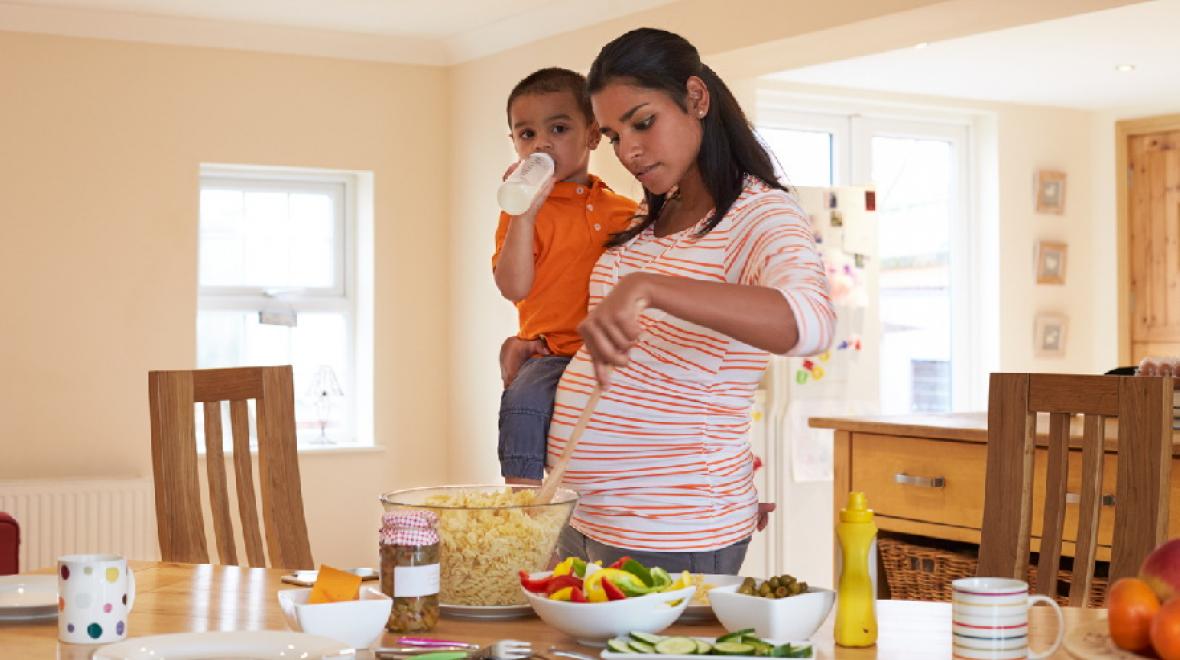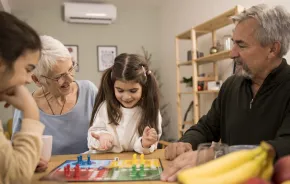
There is arguably not a mother in America — or the world — whose life has not in some way been shaped by the demands of caring for children through the ongoing pandemic. While the personal, logistical and economic challenges presented to mothers and people in care-taking roles over the last three years are not new or unique, especially to those with marginalized identities, they have been brought to the forefront of public conversation as their impact is now more broadly felt. For Seattle author Angela Garbes, the experience inspired the writing of her second book, “Essential Labor: Mothering as Social Change.”
An expert researcher and powerful storyteller drawing deeply from her lived experience as a first-generation Filipino-American and mother of two, Garbes’ work is part personal narrative and part cultural history. Her new book is a hopeful, validating call to action that offers a tangible path to building the brighter future we want for our children and ourselves. This book is not just for mothers, it is a must-read for anyone who understands it takes a village to raise children.
You say the terrain of mothering is not limited to people who give birth to children, can you explain?
While “mother” is an important identity for many women who still provide the majority of care to children in America (myself included!), the noun “motherhood” feels limiting and static. My perspective has grown to consider the work of raising children as mothering, an action that includes people of all genders and nonparents alike. After all, no one cares for children entirely on their own. Rather than viewing care work as a characteristic of the noun motherhood, I now see it as part of the many actions involved in mothering.
Can you talk more about how our society values work and how that impacts the value (or lack thereof) we place on mothering/caregiving?
American society values work in terms of how much we produce and how efficiently we can do it. It tells us our output is our worth. Caregiving, in this light, is inefficient. But it pays dividends. If we were to think about work in terms of our humanity — making people feel dignified, valued and whole — then caregiving is the most important work we can do with our time on earth. The economy could stand to bend to the will of decency and care. What if we built a system that lets us actually care for the people who care for us?
What are some actionable steps readers can take to continue the work of valuing mothering and care work?
I really believe we need everyone’s contributions to this work and that everyone can do something to help. On the most basic level, mothers and caregivers should always talk about mothering as work that must be respected and taken seriously. It might seem easy, but it is so challenging in the face of a society and people who dismiss care work and take it for granted. If those of us who mother see ourselves as workers in a struggle, not just individuals toiling away in our homes, we have a better chance of making collective change. If you have the financial means to pay your nanny (nannies are among lowest paid workers in the country), babysitter, childcare provider, house cleaner or in-home caregiver more, do it!
That will make an immediate and material difference in their lives. Think of ways that you can ease the caregiving burden of others: watch your friends’ kids for a few hours each week, pick up some extra groceries for them, cook them a meal, offer to help them in the garden. Domestic work is unending and we could all use the help — and often some company while doing them! On a broader level, support organizations that are working for paid family leave, affordable childcare and healthcare. You can do this without giving money: Call lawmakers, sign petitions, volunteer, ask them directly what you can do.
A lot of these activities don’t take that much time and they have the added benefit of making you feel useful.
You write about embodied mothering in the book. What do you mean by this?
Western culture generally values the rational mind over the messy, unruly body. We treat our bodies as inconvenient. And in a society that places greater value on cis, white, male bodies many of us are made to feel like we might be better off without our bodies. But our bodies do so much for us — the basic work of keeping us alive — and there is so much physical enjoyment to be found in them. When we are parenting from within, feeling confident and secure in our bodies, rooted in pleasure and love, we are practicing embodied mothering. This leads to embodied children, who understand that their bodies are wondrous, complex, and yes, needful, vessels. I think embodied children, who grow up to be the next generation of adults, can be some of our best offense and defense against the inhumane, distinctly American culture that does not guarantee healthcare and expects us to ignore our bodily needs and pleasures.
This book is also a love letter to your Filipinx culture. Can you talk about your decision to write about this?
I’ve spent most of my life explaining Filipinx culture to people — and definitely in my writing career, where the audience is always presumed to be white. I decided early on that I wasn’t going to do that with this book. I wrote this book for me, for my people; for us, for our culture. It’s the closest I’ve ever come to feeling totally free in my writing.











